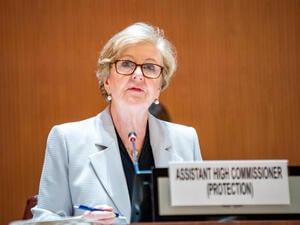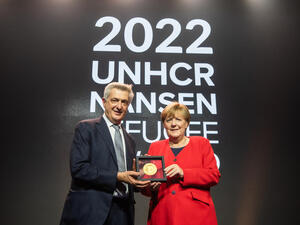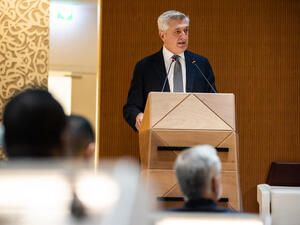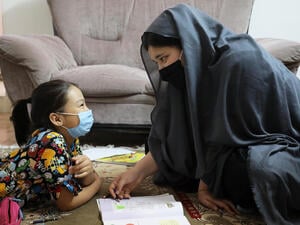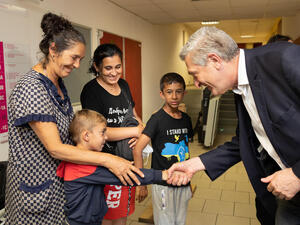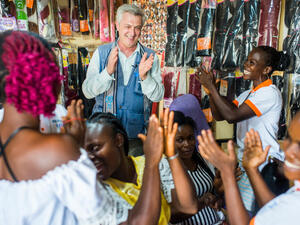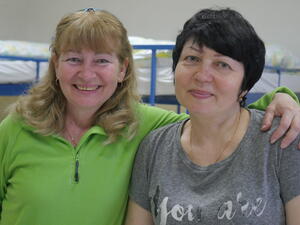UNHCR and Caribbean partners work to raise awareness of "invisible" refugees
UNHCR and Caribbean partners work to raise awareness of "invisible" refugees
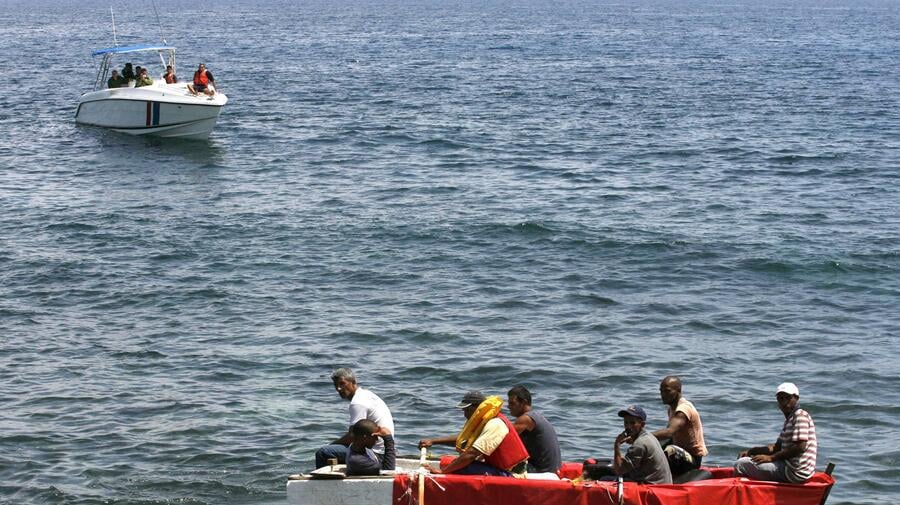
Adrift in the Caribbean. A number of the men, women and children labelled as “illegal” may instead be refugees.
WASHINGTON, DC, United States, February 17 (UNHCR) - In the midst of a tropical paradise, an often unnoticed side of global migration plays out across the Caribbean. Migration trends in the region are strikingly similar to high-profile maritime migration and refugee movements reported daily from the Mediterranean and the Gulf of Aden. Yet the situation in the Caribbean receives far less public attention.
Addressing that fact - by raising public awareness, supporting Caribbean governments to establish asylum safeguards, and strengthening partnerships - was the objective of a workshop held in Washington last week for UNHCR Honorary Liaisons and Red Cross partners in the Caribbean.
In the small Dutch Caribbean island of Aruba alone, dozens of undocumented migrants of many nationalities arrive each year. Most are likely economic migrants seeking a better life, but some have escaped war or persecution. There is a growing awareness in the Caribbean that a number of the men, women and children labelled as "illegal" may instead be refugees, whose lives could be in jeopardy if deported.
Carolina* fled the decades-long armed conflict in Colombia after receiving death threats from an illegal armed group. She found safety in Aruba, but securing wider protections proved more challenging. Lodging an asylum request before the Aruban authorities was only a first step.
Finding safe shelter, evading sexual exploitation and ensuring daily survival without the right to work is a constant struggle for young, single refugee women like Carolina. Separation from her young daughter, whom she had to leave behind with relatives, also causes her emotional anguish. Assistance from the Aruba Red Cross and UNHCR, as well as local community members, has helped her to survive in unfamiliar surroundings.
"In Aruba, you are either legal or illegal. There is no separate status for asylum-seekers or refugees," said Michel Le Haye of the Aruba Red Cross. "If you are illegal, you are deported or detained. There's no money, job, health care or legal assistance for refugees, who may be killed if forced to return to their country.
"In the past, we have had several sloops full of desperate people arrive off our shores; sometimes people drown, survivors are rescued at sea by the coastguard but may be arrested for lack of papers. Other undocumented people arrive by air. The government, including the coastguard and immigration staff, need more training to identify refugees. We also need to sensitize the public on the difference between an economic migrant and a refugee fleeing conflict or persecution," said La Haye.
As interim director of the Aruba Red Cross, La Haye is well positioned to help ensure that vulnerable migrants, regardless of their legal status, receive food, water, clothing and other life-saving assistance. He has turned to UNHCR for additional financial aid for shelter and other needs for refugees, when needed. His goal is to work in partnership with the government, UNHCR and other organizations to ensure that all migrants arriving in Aruba are treated humanely, and those who fear persecution are protected.
Also participating in the workshop were representatives of the International Federation of the Red Cross and Red Crescent Societies (IFRC) from Geneva and from Trinidad and Tobago. UNHCR is exploring ways to strengthen partnership in the Caribbean with IFRC on mixed migration.
Like Carolina who fled from Colombia to Aruba, many asylum-seekers face similar vulnerabilities throughout the Caribbean. Without asylum safeguards, most would likely be turned away and sent back to serious harm. UNHCR's partnership network aims to make the plight of an "invisible" group more visible by supporting Caribbean governments and societies to improve responses.
* Name changed for protection reasons
By Lilli Tnaib in Washington, DC, United States

